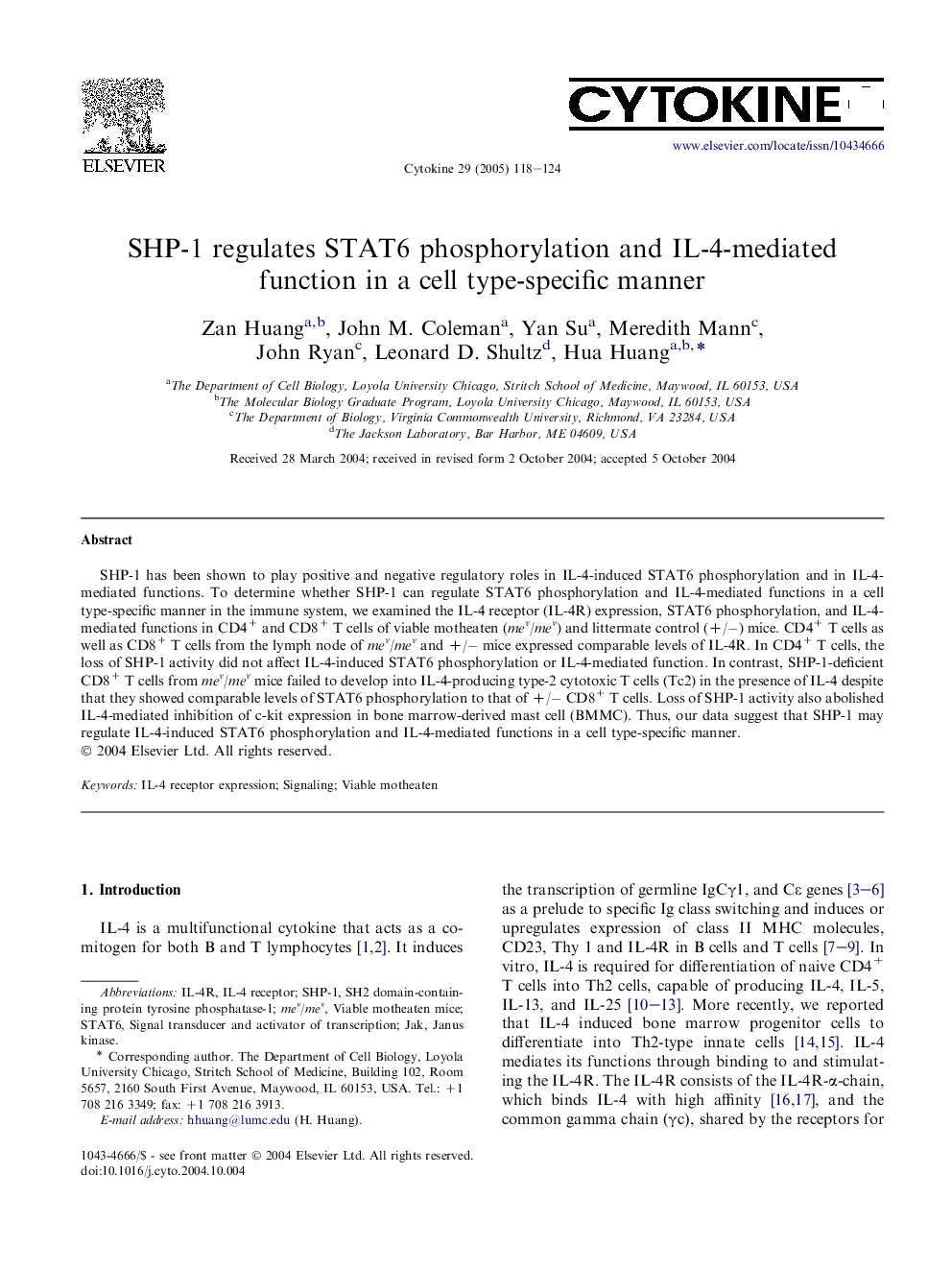| Article ID | Journal | Published Year | Pages | File Type |
|---|---|---|---|---|
| 9110923 | Cytokine | 2005 | 7 Pages |
Abstract
SHP-1 has been shown to play positive and negative regulatory roles in IL-4-induced STAT6 phosphorylation and in IL-4-mediated functions. To determine whether SHP-1 can regulate STAT6 phosphorylation and IL-4-mediated functions in a cell type-specific manner in the immune system, we examined the IL-4 receptor (IL-4R) expression, STAT6 phosphorylation, and IL-4-mediated functions in CD4+ and CD8+ T cells of viable motheaten (mev/mev) and littermate control (+/â) mice. CD4+ T cells as well as CD8+ T cells from the lymph node of mev/mev and +/â mice expressed comparable levels of IL-4R. In CD4+ T cells, the loss of SHP-1 activity did not affect IL-4-induced STAT6 phosphorylation or IL-4-mediated function. In contrast, SHP-1-deficient CD8+ T cells from mev/mev mice failed to develop into IL-4-producing type-2 cytotoxic T cells (Tc2) in the presence of IL-4 despite that they showed comparable levels of STAT6 phosphorylation to that of +/â CD8+ T cells. Loss of SHP-1 activity also abolished IL-4-mediated inhibition of c-kit expression in bone marrow-derived mast cell (BMMC). Thus, our data suggest that SHP-1 may regulate IL-4-induced STAT6 phosphorylation and IL-4-mediated functions in a cell type-specific manner.
Keywords
Related Topics
Life Sciences
Biochemistry, Genetics and Molecular Biology
Endocrinology
Authors
Zan Huang, John M. Coleman, Yan Su, Meredith Mann, John Ryan, Leonard D. Shultz, Hua Huang,
